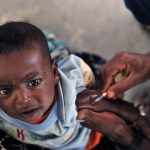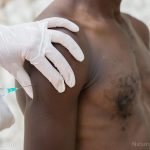
Scientists sound alarm as PLAGUE mutation could become resistant to all known conventional medicine
Tuesday, November 14, 2017 by Isabelle Z.
http://www.depopulation.news/2017-11-14-scientists-sound-alarm-as-plague-mutation-could-become-resistant-to-all-known-conventional-medicine.html

Although it might sound like a disease of yesteryear to many Americans, plague is not uncommon in Madagascar. However, this year’s outbreak, which has already killed nearly 170 people there, is markedly different from the strain that usually emerges in the country, and it has some experts seriously concerned about what’s in store.
This year, two-thirds of the plague cases reported in the country have been pneumonic, the deadliest type, and it is being called the worst outbreak in half a century. The country, which normally sees an average of 400 cases of plague per year, has already had 2,000 cases of the illness and the plague season is just getting started.
The illness is easily spread via sneezing, spitting, coughing, or otherwise coming into contact with bodily fluids of infected people. It’s related to the famous Black Death that killed 200 million people across Asia and Europe in the 1300s.
University of East Anglia health protection lecturer Professor Paul Hunter believes the disease could reach Europe and even North America, much like what happened with Ebola following the outbreak in West Africa three years ago. He said that the possibility of it mutating and becoming untreatable is a real one.
The World Health Organization’s Dr. Charlotte Ndiaye said: “WHO is concerned that plague could spread further because it is already present in several cities and this is the start of the epidemic season, which usually runs from September to April.”
Pneumonic plague is nearly always fatal if left untreated, but antibiotics can treat it if it is detected early. In the current outbreak, fatalities jumped by 15 percent in just three days, prompting concerns it is reaching crisis levels.
Ten countries are now on high alert because of the outbreak, with South Africa, Malawi, Seychelles, Reunion, Kenya, Ethiopia, Mozambique, Comoros and Mauritius joining Madagascar. Experts say that if it spreads from the island to mainland Africa, it could be difficult to control.
Making matters worse is the fact that unlike in previous years when the disease has largely been confined to remote areas, this year’s outbreak is mostly concentrated in the country’s two biggest cities, Toamasina and Antananarivo.
Plague season just beginning
A WHO spokesperson said that it is impossible to rule out the possibility of more cases as the plague season isn’t slated to end until April, and they’re encouraging people to remain vigilant. They say the risk of further spread at the national level in Madagascar remains high.
There are frequent flights and ferries going between the island and the African mainland, prompting concerns about travelers introducing it to other areas, but the short incubation period of the pneumonic variety means many sufferers would become too ill too quickly to travel far and spread it. In addition, exit screening measures have been implemented in Madagascar, and nearby countries are also taking precautions.
Schools and universities have been closed to try to contain the illness as it tends to spread faster among children. The buildings are also being sprayed to eliminate any fleas that could be carrying the plague.
Many locals are hesitant to seek treatment because they are scared of hospitals, and they often have to walk for more than a day to receive treatment. This means there could be many more cases going unreported as patients fail to get a proper diagnosis.
Health officials aren’t sure exactly how this year’s outbreak started, but it is believed that forest fires could have driven the rats that carry the Yersinia pestis bacteria toward rural communities. These rats and their fleas bite people and infect them, and when left untreated, the bubonic strain spreads to the lungs and becomes the pneumonic form that can kill people within 24 hours.
Sources include:
Tagged Under: Tags: bubonic plague, crisis, infectious disease, Madagascar, outbreak, Plague, pneumonic plague





